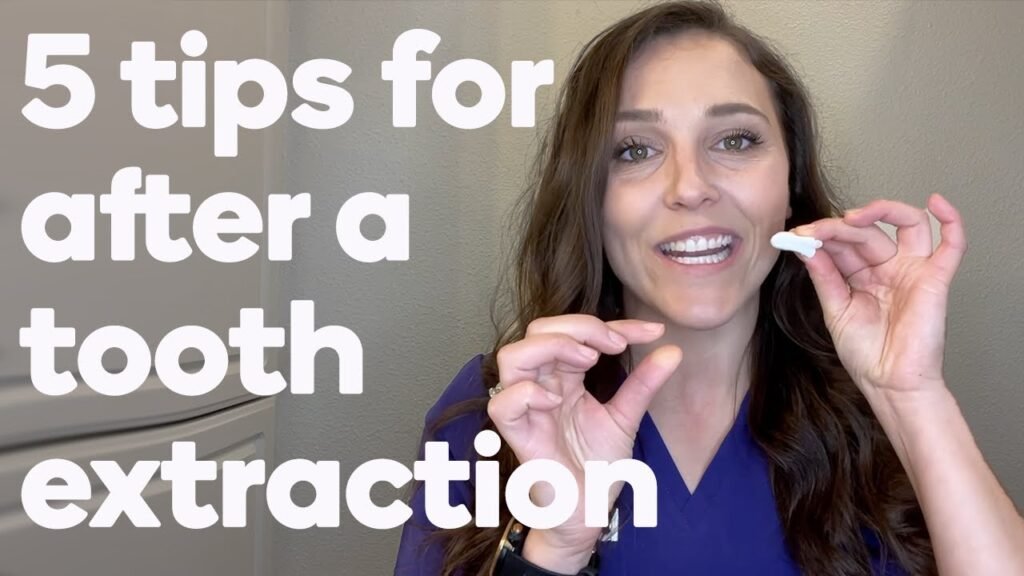Post-Tooth Extraction Diet: What to Eat for Optimal Healing

So you've just had a tooth extracted, and now you're wondering what to eat. It's important to stick to soft, easy-to-chew foods to avoid irritating the extraction site. In this article, we'll explore a variety of nutritious and delicious options to help you stay nourished and comfortable during your recovery. Whether you're craving something savory or sweet, we've got you covered with plenty of tasty suggestions to make your post-extraction diet a breeze.
How long do I need to wait before eating after a tooth extraction?
You may be wondering when you can eat after a tooth extraction. The good news is that you can have something to eat about an hour after the surgery. However, it's important to stick to soft foods for the first 24 hours and avoid hot foods and drinks for a few hours after the procedure. This will help promote healing and prevent any discomfort as you recover from the extraction. So, while you may be feeling hungry, remember to take it easy on your mouth and choose gentle, soft foods to enjoy in the hours following the surgery.
What are the do's and don'ts after tooth extraction?
After a tooth extraction, it is important to follow certain guidelines to ensure proper healing. Do follow your dentist's instructions for pain medication and care of the extraction site. It is recommended to gently rinse your mouth with warm salt water after 24 hours to keep the area clean. Additionally, stick to soft foods and avoid chewing on the side of the extraction for a few days.
Avoiding certain activities is crucial for a smooth recovery after a tooth extraction. Don't drink with a straw, suck on candy or ice pops, slurp soups or other liquids, rinse your mouth vigorously, or smoke for 24 hours. These actions can disrupt the blood clot formation and lead to complications. It is also advised to refrain from consuming alcohol or using mouthwash containing alcohol during this initial healing period.
How long should one wait to drink water after getting a tooth pulled?
After getting a tooth pulled, it is recommended to wait at least an hour before drinking water. Once the blood clot has formed, it is important to stay hydrated by drinking plenty of water. However, be cautious not to swish the water around in your mouth or drink through a straw, as this can disrupt the blood clot and impede the healing process.
Remember to prioritize your oral health by waiting for the blood clot to form before drinking water after a tooth extraction. Hydration is key to a successful recovery, but be mindful of how you consume water to avoid any complications.
Nourishing Your Recovery: A Guide to Post-Extraction Nutrition
After undergoing a tooth extraction, it is crucial to prioritize your recovery by nourishing your body with the right nutrients. Opt for soft, easy-to-chew foods such as yogurt, mashed potatoes, or smoothies to avoid irritating the extraction site. Incorporating foods rich in vitamins C and E, along with protein, can help promote healing and reduce inflammation. Remember to stay hydrated and avoid consuming hot or spicy foods that can potentially cause discomfort.
In addition to focusing on your diet, it is important to follow post-extraction care instructions provided by your dentist to ensure a smooth recovery process. Avoid smoking and drinking alcohol, as these can hinder healing and increase the risk of complications. Be gentle with your oral hygiene routine, using a soft-bristled toothbrush and rinsing with salt water to keep the extraction site clean. By prioritizing post-extraction nutrition and proper care, you can support your body's healing process and promote a quicker recovery.
Maximizing Healing: The Best Foods for Post-Tooth Extraction Care
After a tooth extraction, it is crucial to nourish your body with the right foods to promote healing and reduce the risk of complications. Opt for soft, easy-to-chew options like yogurt, mashed potatoes, and smoothies packed with fruits and vegetables. These foods provide essential nutrients and are gentle on the healing gums, helping to expedite the recovery process. Additionally, incorporating foods rich in vitamin C, such as oranges and bell peppers, can boost the immune system and aid in tissue repair. By choosing the best foods for post-tooth extraction care, you can maximize healing and get back to feeling your best in no time.
In summary, choosing the right foods to eat after a tooth extraction is crucial for promoting healing and preventing discomfort. Opt for soft, nutrient-rich options like smoothies, yogurt, and mashed vegetables to support your body's recovery process. Avoiding hard, crunchy, or spicy foods will help prevent irritation and support a smooth healing process. By following these dietary guidelines, you can ensure a speedy and comfortable recovery after a tooth extraction.